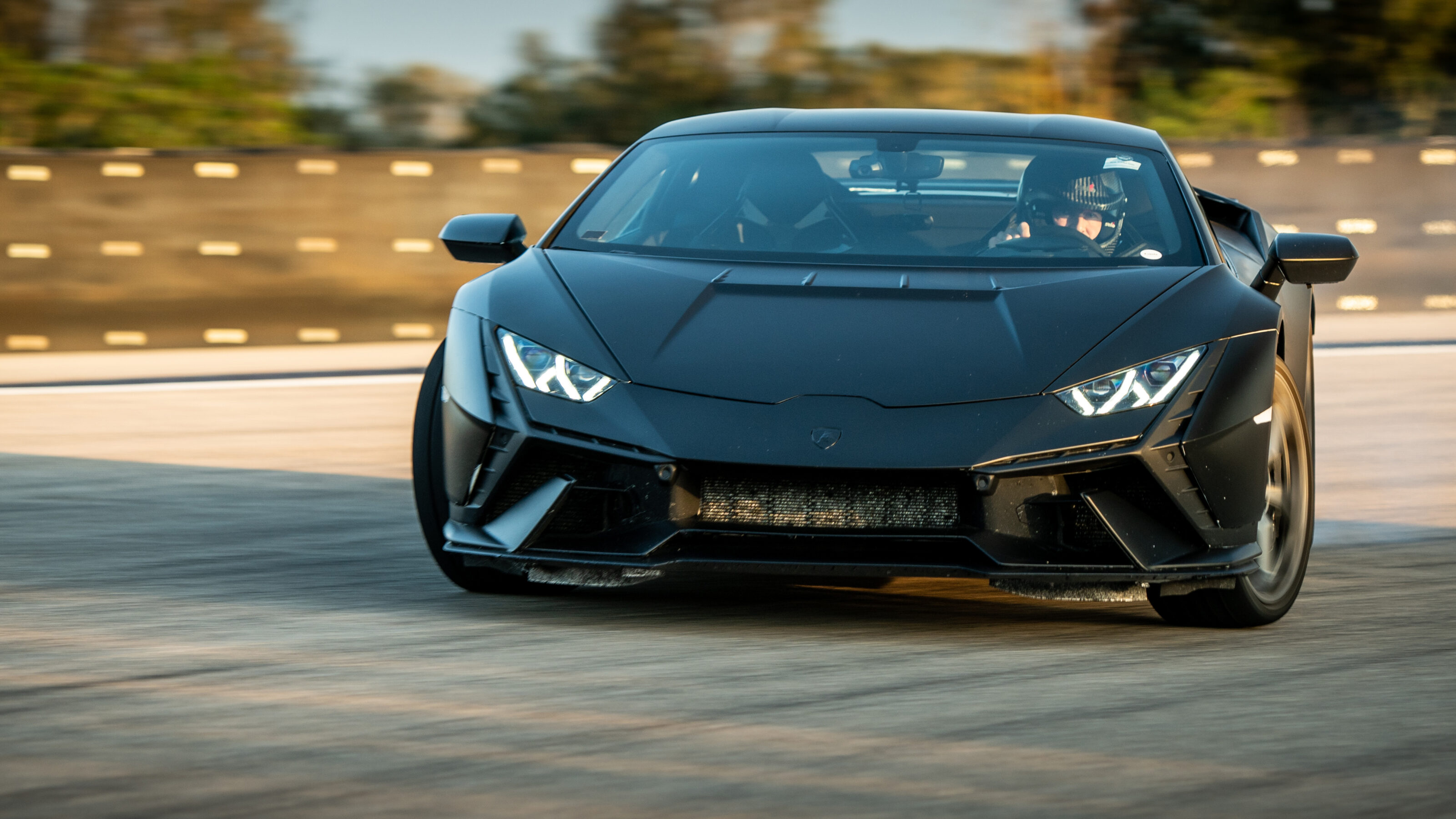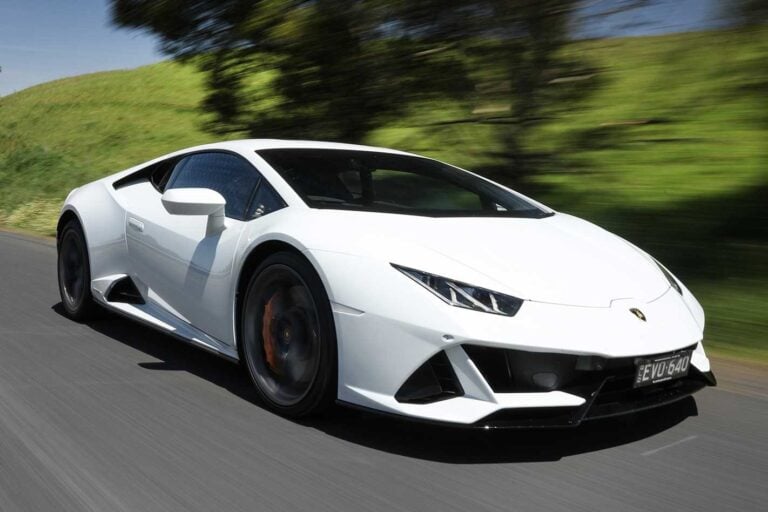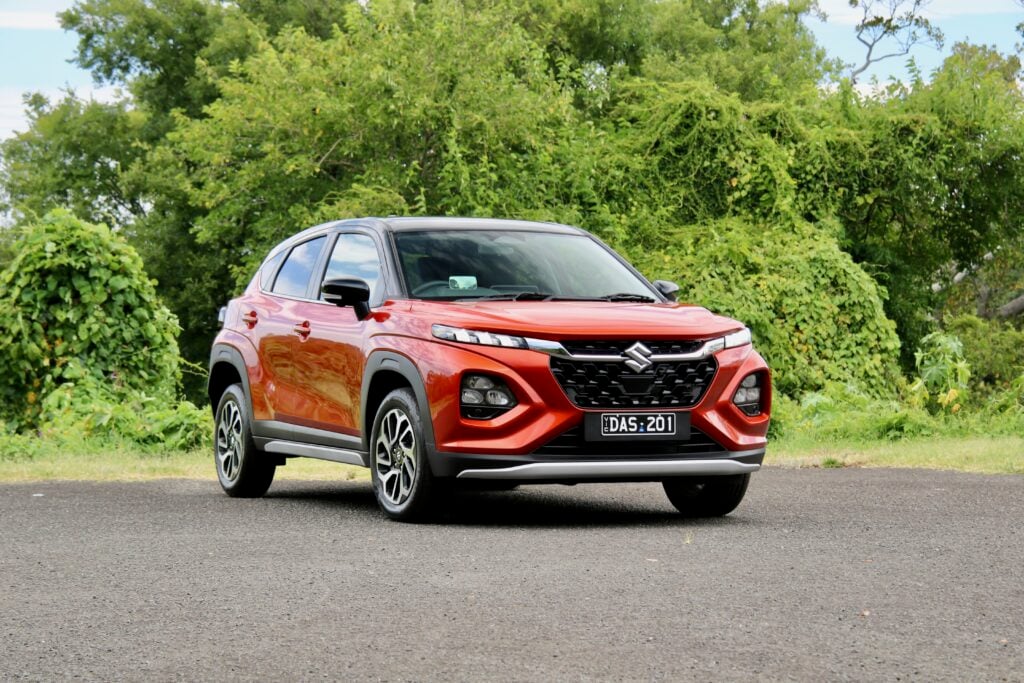Things we like
- Scintillating engine
- Ten out of ten street cred
- The old world at its best
Not so much
- No space for anything, driver included
They claim the Lamborghini Huracan Tecnica performs equally well on road and track. But the Huracan is getting long in the tooth, and a fully electric Lamborghini sportscar is nowhere in sight.
Our pre-drive of the Tecnica last November was the farewell launch hosted by the long-running CTO Maurizio Reggiani, except no one knew it at the time. A Lamborghini veteran, Reggiani was sidelined by the powers in Ingolstadt and Wolfsburg who are demanding a faster and more radical paradigm shift from combustion engines to EVs.
Befittingly, it was the charismatic chief engineer who proudly presented the brand’s second-from-last 100 per cent electric-free product based on the final version of this organically grown DNA.
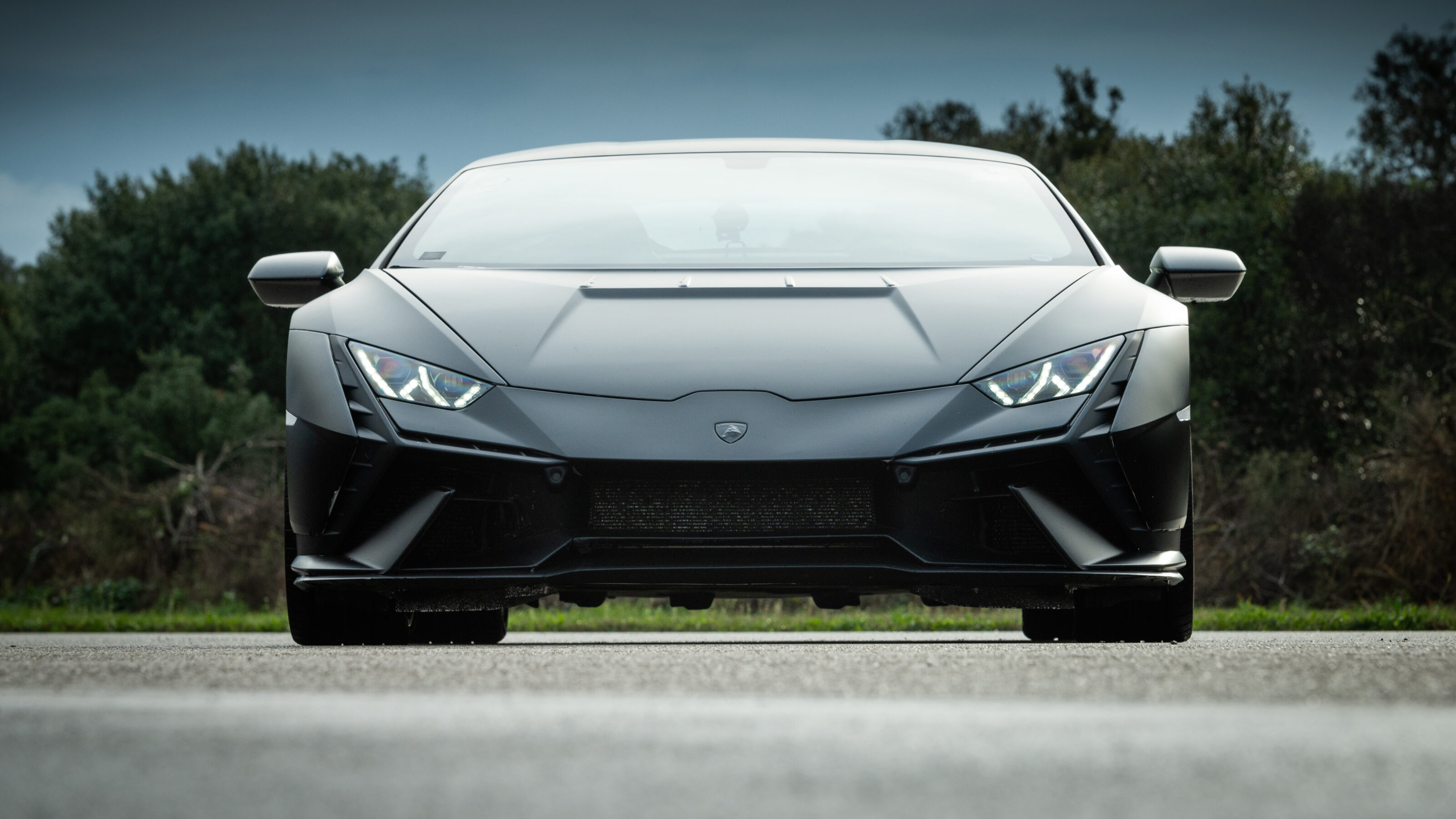
Virtually unchanged are all essential elements such as the large-displacement naturally-aspirated high-revving V10 engine, the rear-wheel-drive chassis tuned for extra excitement and emotion, the snug cockpit garnished with videogame-inspired graphics, and the extrovert and provocative design.
Like the Gallardo it was derived from, the Huracan mimics the Porsche 911 for variety in style, character and engineering applications.
In addition to the coupé and spyder, the Encyclopedia Huracania bristles with genetic mutations from LP580-2 over LP610-4 and Evo 2WD/4WD to the Performante twins, the red hot STO and now the Tecnica. Later this year, the stacked Sterrato neo-crossover will take on the 2023 911 Safari in the sand-and-gravel sweepstakes.
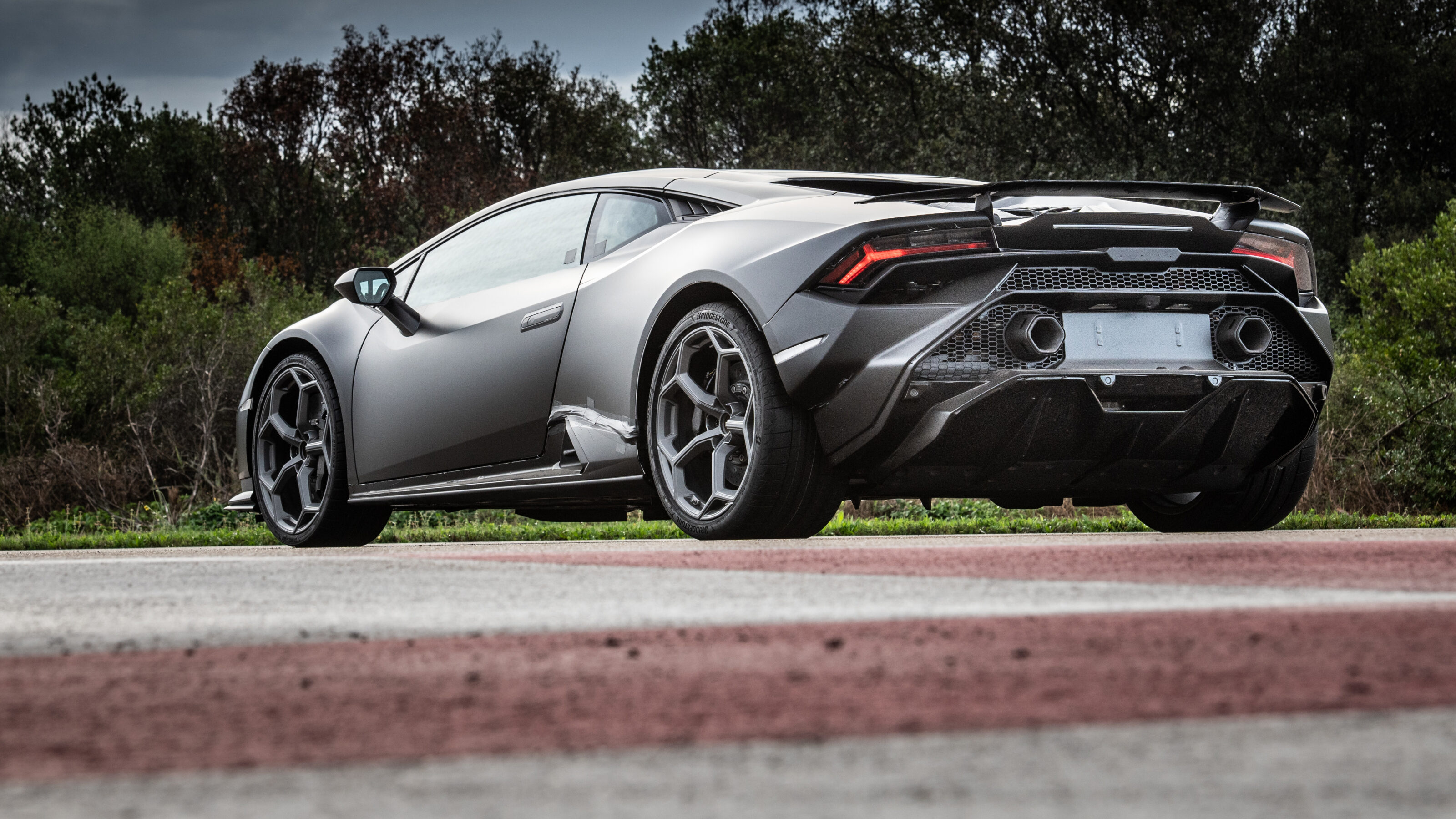
Lamborghini and its Audi parent brand share the vocal and brawny V10 engine that went into production 20 years ago in 500bhp (373kW) 5.0-litre guise. After half a dozen updates, the latest 5.2-litre iteration is good for a remarkable 477kW, but when the EU7 emission bludgeon strikes in 2025 or 2026, it will long have been replaced by a turbocharged 4.0-litre V8 developed and built in-house specifically for the Huracan successor.
The Tecnica is the newest version of an old car that has aged well. In terms of overall merit, however, it cannot compete against fresh fare like the Ferrari 296GTB, and even the McLaren Artura and the Maserati MC20 are bound to be tough acts to follow.
The latest 5.2-litre iteration is good for 477kW, but when the EU7 emission bludgeon strikes in 2025 or 2026, it will long have been replaced by a turbo V8
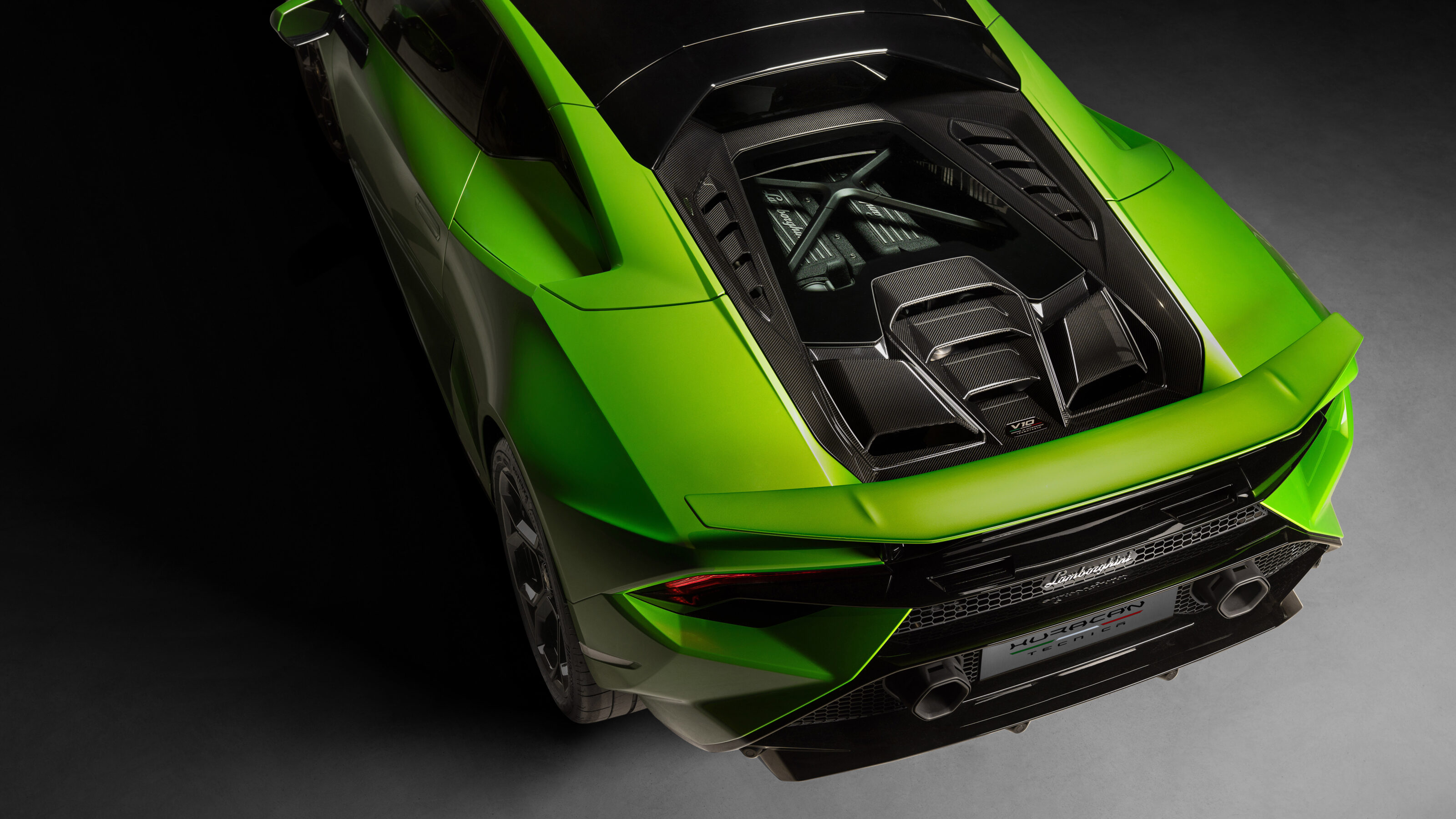
Potentially compromising the Tecnica’s mission is its positioning between the RWD STO and the AWD/RWD Evo. While the pricey STO was a no holds barred sportscar capable of dicing with the sharpest blades in the business, the Evo is a powerful mid-engined uber-GT clad in a head-turning livery that mixes late Versace and early Philip Plein touches with a twist of Vivienne Westwood frivolity.
As far as the numbers go, the difference in price is notably more spectacular than the performance-related nuances, the lap times and the fuel consumption results.
Nobody speaks the Lamborghini design language as fluently as styling chief Mitja Borkert, who created more one-offs and few-offs for the brand from Sant’Agata than any of his predecessors. With the Tecnica, he took the trademark wedge shape to the next level of refinement, efficiency and coolness.
The more elegant revised greenhouse mimics the Essenza SCV12, the two hexagonal exhaust end pieces repeat an omnipresent visual cue, the fixed rear spoiler relays that coveted Supertrofeo touch, and the Y-shaped light graphics and front air intakes shout Lamborghini even from a distance.
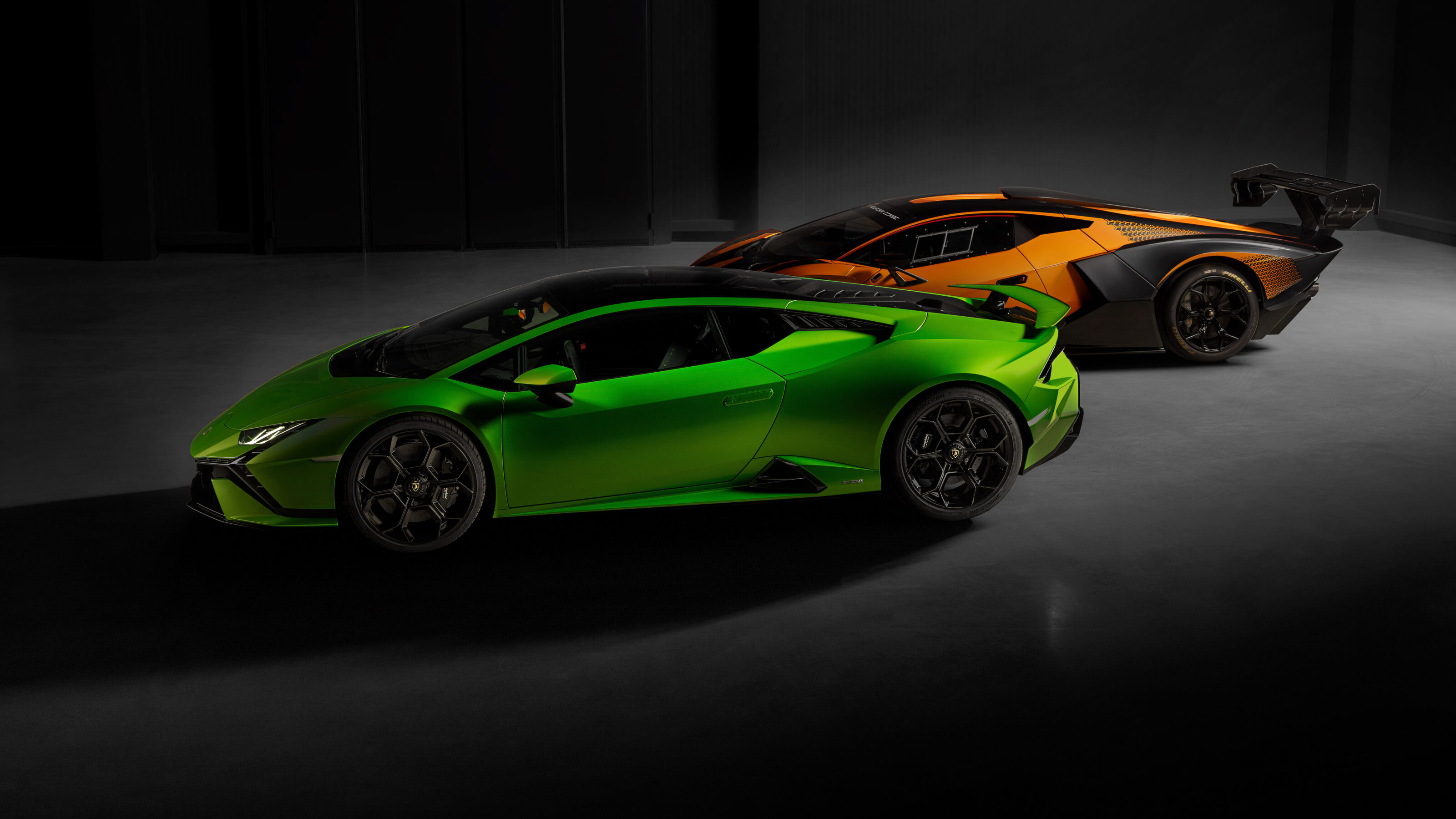
While the height and width are unchanged, the spectacular aero aids add 61mm to the overall length of the car. More importantly, they increase downforce by 35 per cent while at the same time reducing drag by 20 per cent. According to Lamborghini, this improved aerodynamic balance substantially enhances turn-in grip and high-speed stability.
Entering a Lamborghini invariably feels like trying on a garment that is at least one size too small. Somehow, however, even the tightest-fitting cabin proposed by il ragazzi Bolognese so far managed to accommodate the writer’s big and tall frame without immediately suspending the most elementary bodily functions.
The main cockpit novelty is the restyled centre console, which houses a higher-tech HMI system along with the trademark gated starter button
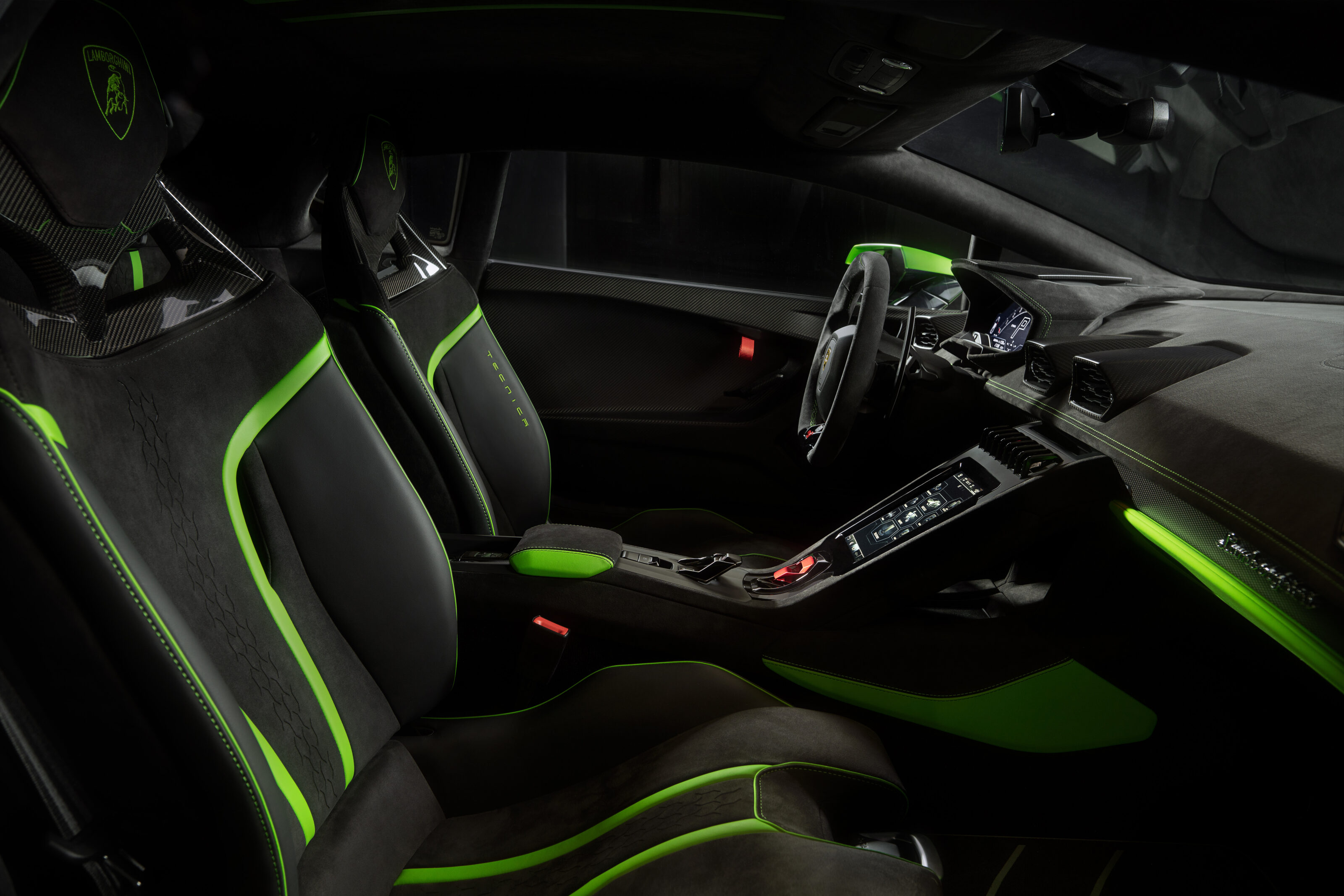
As opposed to the STO, the Tecnica seats are height-adjustable, their extra-thin padding a bonus for some and with the four-point safety belts pulled tight, man and machine bond with what feels like superglue finitude.
The main cockpit-related novelty is the restyled centre console, which houses a higher-tech HMI system along with the trademark gated starter button and the secondary switchgear.
Graphic arrangements are arguably even more cluttered than earlier Audi-derived pictogams, but the information is now more detailed and comprehensive. Downsides include the small upright monitor and the accordingly poor legibility.
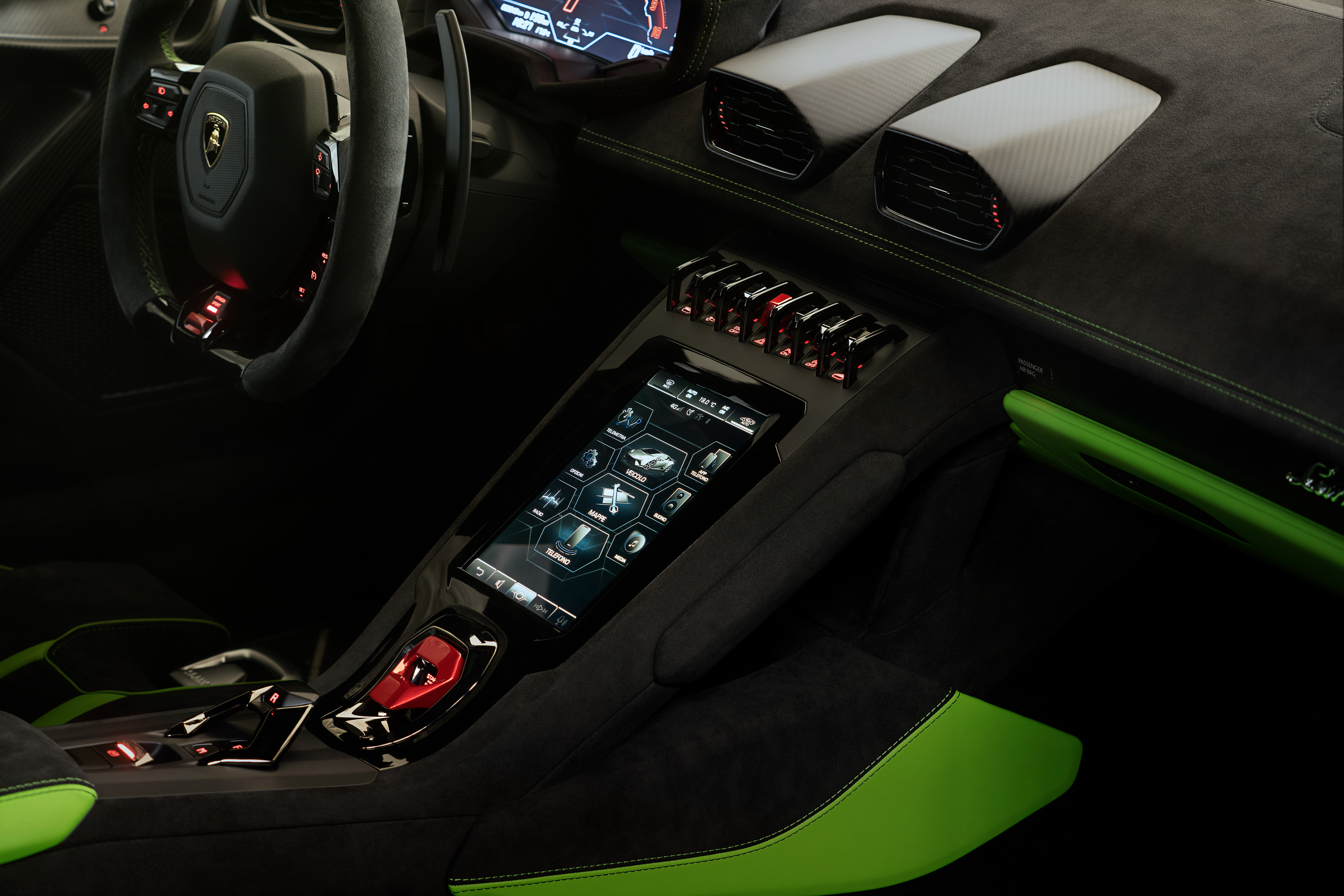
Although customers can choose between lifestyle-oriented and overtly sporty cabin trim, all three pre-production test cars were shrink-wrapped track-day specials.
The Evo’s single round centre instrument has given way to a new layout comprising a huge gear indicator, tiny digital speedometer, semi-circular rev counter, two pairs of bar graphs on either side, an almost illegible g-force indicator and the usual odometer, distance to empty, time and temperature readouts.
It sounds cramped but is actually relatively easy to use and certainly less gaudy than the rainbow-coloured displays seen in certain previous models.
The Anima driving programme selector that used to ride in the centre stack is relocated to the bottom of the steering wheel in the Tecnica. The three modes labelled Strada, Sport and Corsa can be overridden by a quick flick at the damper and stability control rocker switches.
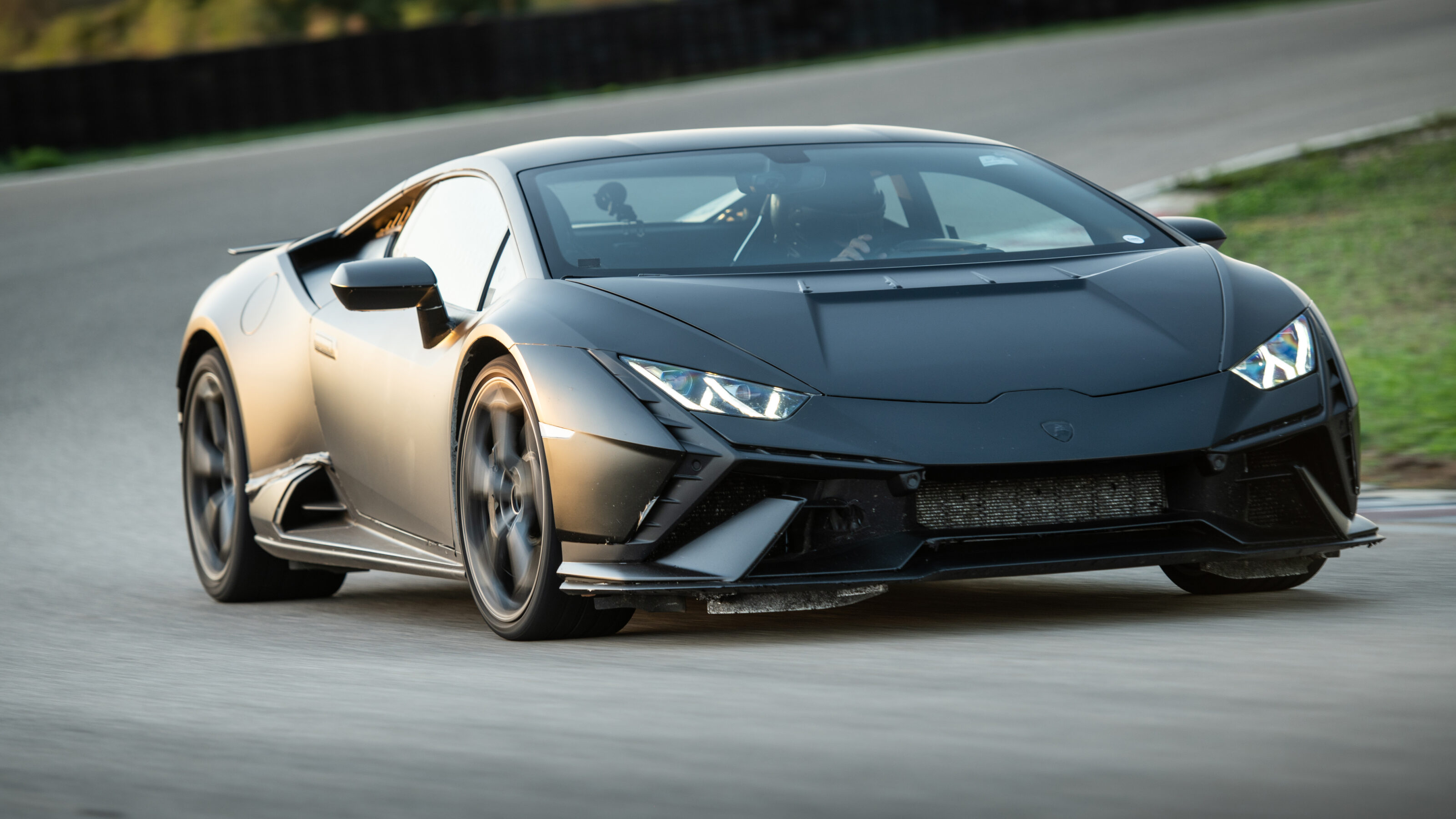
Every type of engine has its unmistakable voice, sings a unique tune, fires to a bespoke order, follows the composition of a tailor-made ECU. Turbocharged powerplants often sound like mechanical big bands backed up by all sorts of artificial whining, whistling, hissing and rumbling supporting acts.
The naturally aspirated V10 is in contrast a reduced chamber orchestra devoid of shamming synthesisers and overkill amplifiers. You hear what you get, and you get an unfiltered intake, combustion and exhaust jam session.
Give it stick, and your ears will go pop in a bone-dry phonetic climax. Lift off, and the acoustic ivory tower collapses in minor acoustic earthquakes
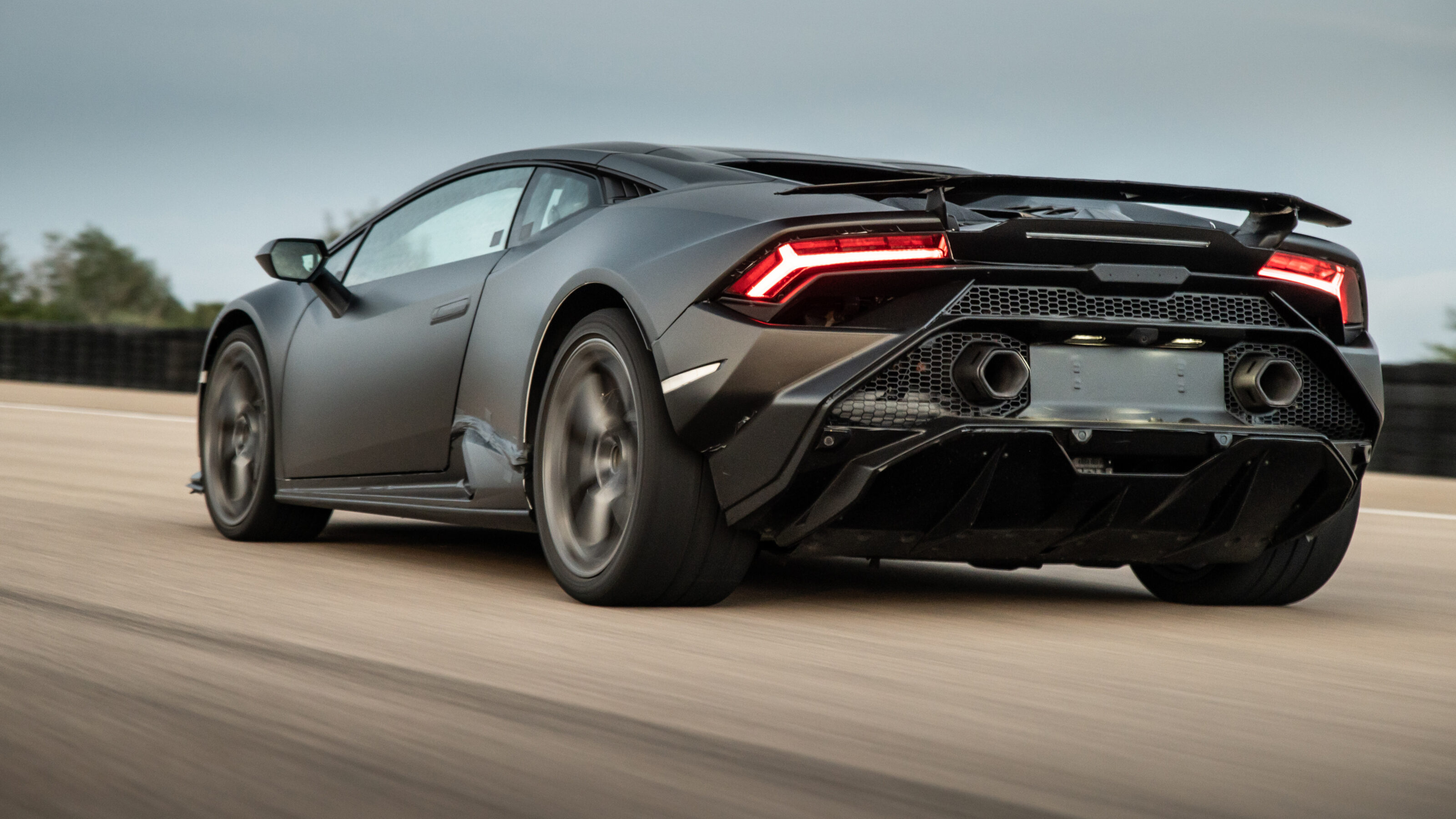
When summoned, the starter motor explodes like a miniature hand grenade, the neither here nor there idle speed struggles to coordinate the team hangover and revs build with the growing intensity of synchronised machine-gun fire.
Give it stick, and your ears will go pop in a memorable bone-dry phonetic climax. Lift off, and the acoustic ivory tower collapses in a series of minor acoustic earthquakes. Keep the V10 spinning above 5000rpm, and the almost linear wah-wah will billow out like a megaphone stuck on full song.
It’s neither the 3.2sec 0-100km/h acceleration nor the 322km/h top speed or the fictitious 13.9L/100km economy rating that grab you by the wrists or make the heart beat faster.
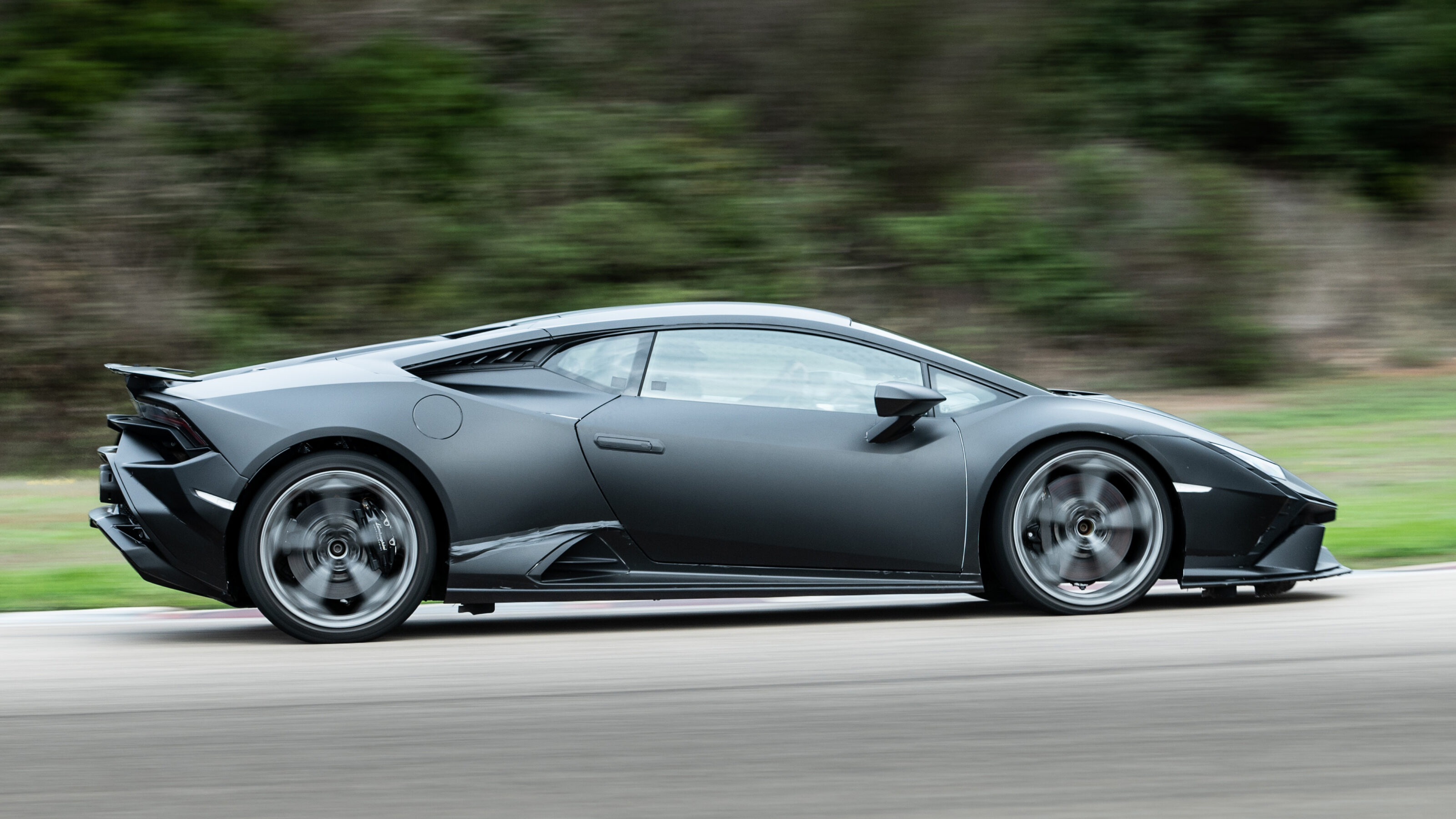
It’s not the 640 horses or the 565Nm of maximum torque that pump more adrenalin into the bloodstream either.
What does the trick here is the persistently high level of excess. Everything this car does happens close to or right at the respective peak.
Full torque equals a yelling, roaring and hammering 6500rpm. Full power requires an even more intense 8000rpm. Full throttle is capped by the limiter at a deafening 8200rpm. Lambo being Lambo is of course waxing lyrical about the improved acoustic comfort, the sharper engine note at high revs, the brand-specific sound emotion and the altogether more physical driving experience.
Fact and fiction, in debatable order.
Strada is the setting of choice for the bleached and bumpy Mussolini-era tarmac that typically crusts the ancient byways around Nardo and in the poorer parts of Puglia. Sport is a safe bet for the first rain after a long dry period, for the first lap on an unfamiliar circuit and for the first attempt at showing off without paying dearly for it moments later.
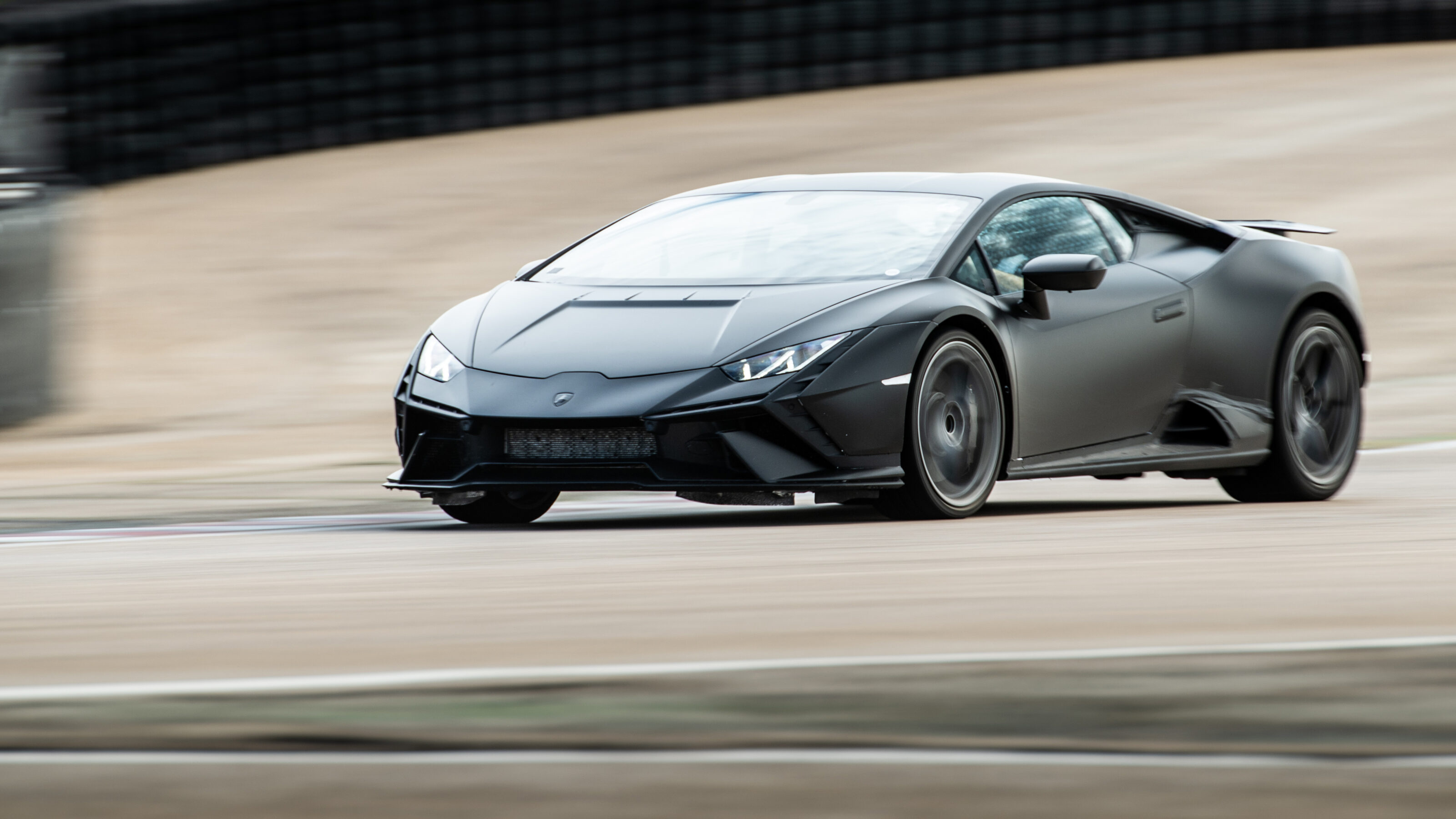
For all other purposes, Corsa is what moves the Huracan Tecnica away from Evo suavity and a big step closer to STO commitment. True, the STO is even more extreme in terms of suction-cup downforce, admirable lift-off stability and astonishing turn-in speed. But this impressive single-mindedness does narrow the balance beam to an extent only professional ballerinas can master without putting a step wrong.
The Tecnica is more accessible and more forgiving overall. It won’t punish you for taking a little longer to adapt to the timing, input and response sequence that is best for any given track. Missing the brake point by half a car length, turning in fractionally too late or taking too much momentum into a corner does not automatically spell drama or even disaster either.
In Corsa mode, the Tecnica raises its ambitions … the rear-wheel steering adds more precision to that looming touch of on-demand oversteer
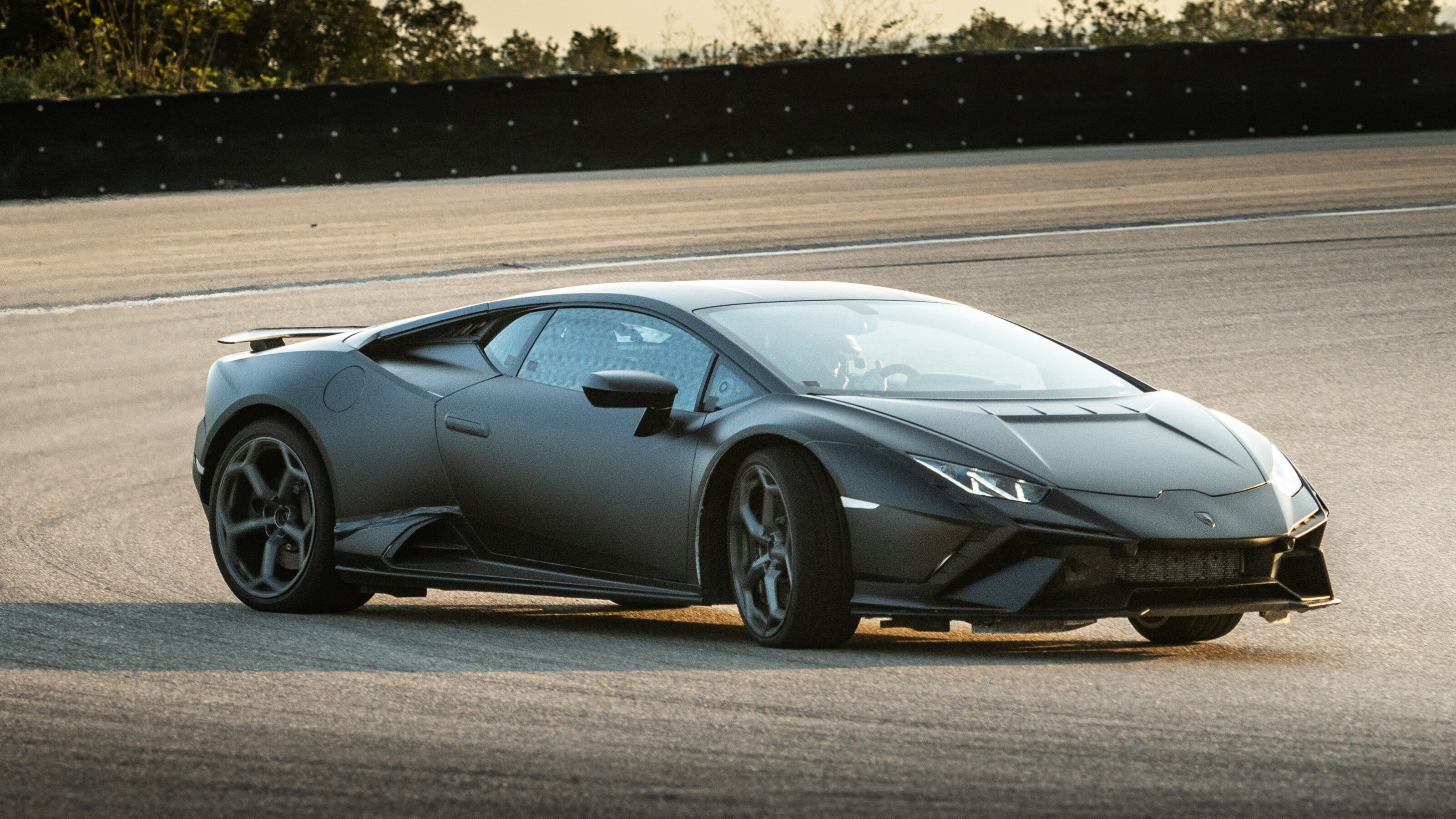
In Corsa mode, the Tecnica raises its ambitions based on the extra talent it fields over the Evo. The rear-wheel steering adds more precision to that looming touch of on-demand oversteer. Traction control permits a little more slip while further enhancing the lateral and longitudinal grip.
The throttle response duly speeds up from lightning fast to surreal-instant. The seven-speed transmission whips the gears through the invisible gate with masochistic brutality. The electronic mastermind that coordinates the three drive modes is dubbed LDVI, short for Lamborghini Dinamica Veicolo Integrata.
In the brand’s hedged marketing speech, it delivers feed-forward pre-control in virtual real-time. Come again? In real life, blasting up and down the awesome Nardo handling circuit, the ultimate eye-openers are the positively riveting, fade-free carbon-ceramic brakes that benefit from a much-improved cooling and heat-dissipating network.
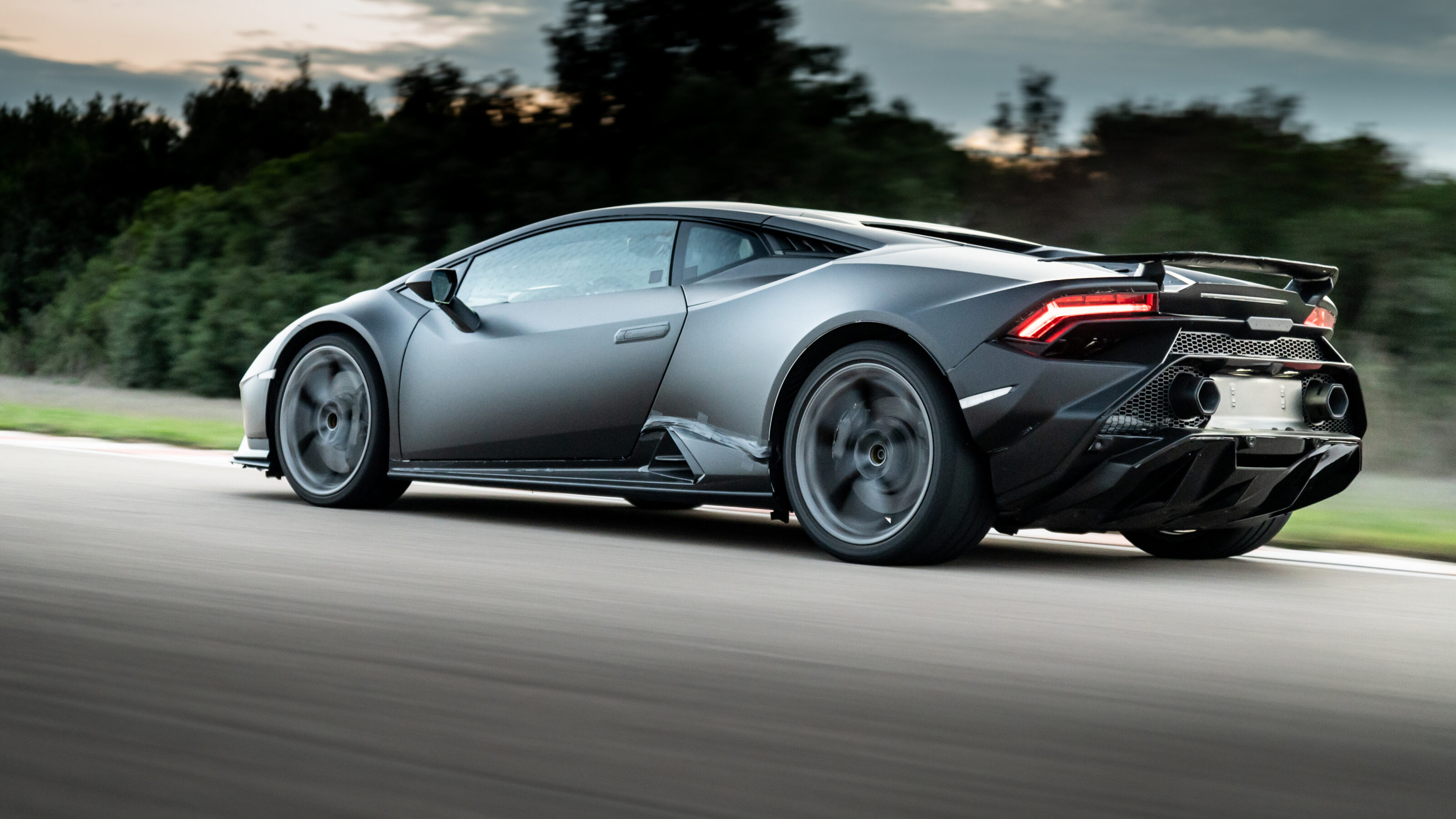
The STO is quicker still and almost 32km/h faster at the end of the longest straight, but with all electronic aids switched off, it requires more skill and faster reflexes than the comparatively benign Tecnica. In places where the sold-out batmobile would pitch and yaw, snap and bite, attack and let go again, the new in-between offering feels more progressive, better balanced and notably creamier around the limit of adhesion.
True, there is a little more body roll, brake dive and corner exit tail wriggle. But at the same time, the Tecnica promises and delivers an extra dash of composure and compliance – not too much to spoil the fun, yet enough to widen the margin of error and with it the comfort zone. Although the more homogenous set-up does make it a little easier to overdrive the front tyres, the steering, brakes, chassis and drivetrain interact on a higher level of professionalism. As a result, the physique is not battered when you step out of the car whereas the mind is already contemplating an encore.
The Tecnica is both beauty and beast, track tool and autostrada dominator, café racer and B-road conqueror. It stimulates all seven senses like every proper Lamborghini should
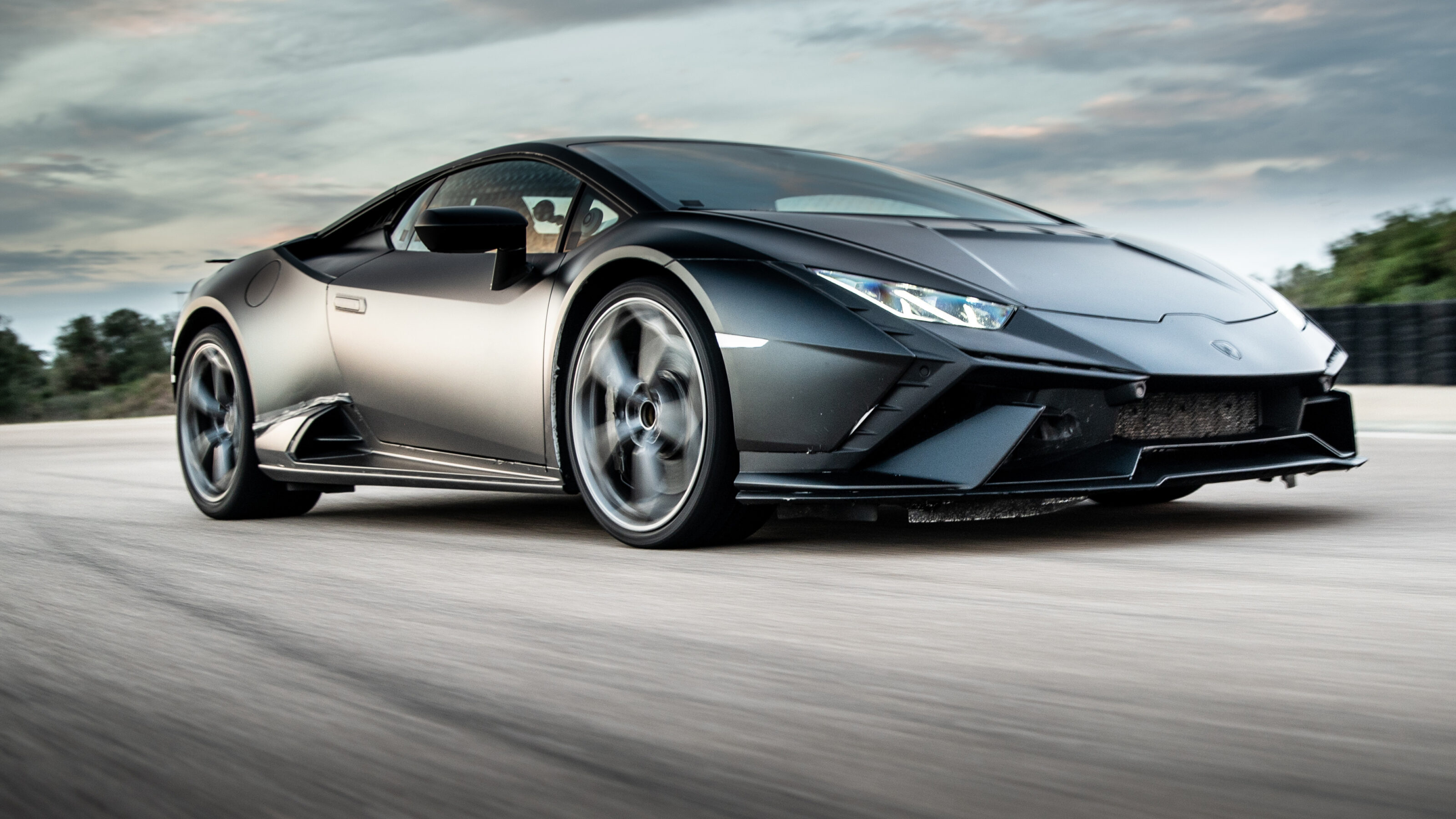
The Tecnica is both beauty and beast, track tool and autostrada dominator, café racer and B-road conqueror. It stimulates all seven senses like every proper Lamborghini should. The marque’s least aggressive model is perhaps the limited-edition Countach, the most extrovert effort is the now-defunct Aventador SV. Visually, the Tecnica is more middle ground all-rounder than loud poseur.
Engineering wise, it raises the bar thanks to light weight (the manufacturer quotes 1379 kilos), superior aerodynamics and improved brake performance. In terms of driveability, it widens the talent span between cruiser and bruiser to the user’s liking. Furthermore, this Huracan successfully conceals its true age with fine build quality, head-turning presence and a strong voice that is always worth listening to.
As a hardcore sportscar, its heyday is over. As a statement of style and substance, however, the V10-engined classic already owns a front-row space in the gallery showcasing our favourite yesterday heroes.
VERDICT
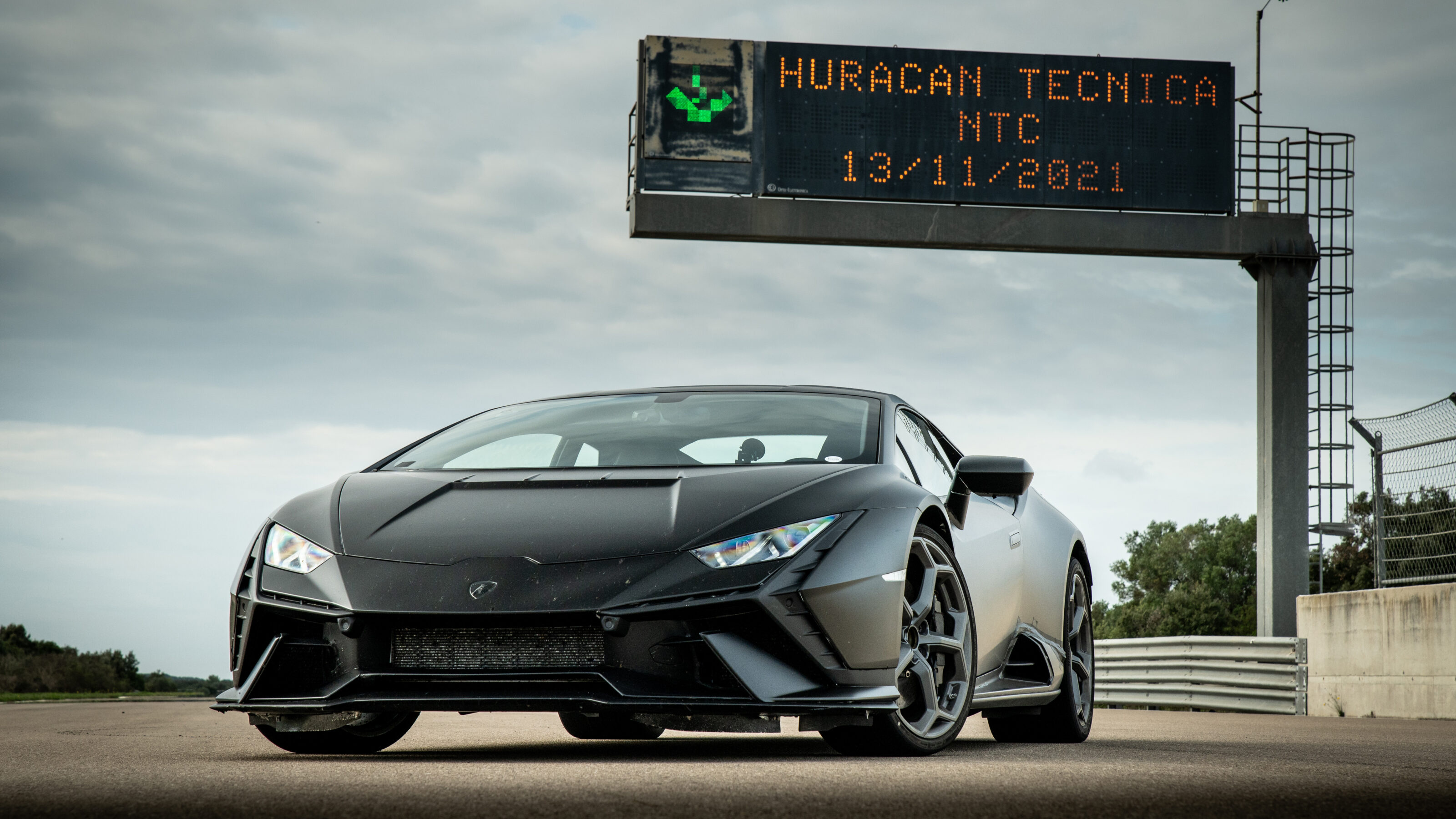
The Tecnica slots in between the Huracan Evo and the STO. Only available in RWD form, the new arrival is a Lambo through and through – high on excitement and show-off value, but dynamically distanced by the F8 Tributo and the 296 GTB.
An emotional testament to the brand’s glorious past, the Aventador’s little brother will eventually be replaced by a hybridised two-seater developed from scratch.
2022 Lamborghini Huracan Tecnica specifications
Things we like
- Scintillating engine
- Ten out of ten street cred
- The old world at its best
Not so much
- No space for anything, driver included

